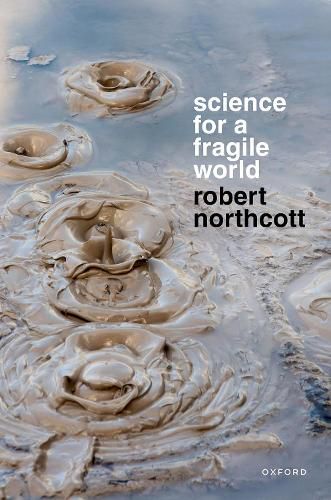Readings Newsletter
Become a Readings Member to make your shopping experience even easier.
Sign in or sign up for free!
You’re not far away from qualifying for FREE standard shipping within Australia
You’ve qualified for FREE standard shipping within Australia
The cart is loading…






Imagine two worlds. In one, laws, causal relations, and mechanisms are stable. In the other, they are fragile and unreliable. Our actual world is a mixture of the two, but for many of the things we care about most, the relations that matter are fragile. Fragility means we cannot rely on a theory or model that worked in one case still working in another, so it requires us to re-establish what works each time. Science for a Fragile World offers a novel re-examination of theory and empirical investigation, opening up a new view, and path, for scientific expertise. Chapters 1 and 2 offer an introduction and definition of the concept of fragility, proposing that a relation is fragile if and only if it holds unpredictably enough. Following from this, Chapters 3 and 4 explore the importance of narrow-scope empirical investigations and the methodological need for a 'Case Worker'-as opposed to a Stability-Theorist-approach. Chapters 5-7 further reflect on the unique challenge posed by the ubiquity of fragility for scientific methodology and the philosophy of science. In the latter chapters, Northcott delves into the impact of fragility in key case studies: economics, big data, and epidemiological modeling in the Covid-19 pandemic. Cutting through the strictures of the classic scientific realist debate, the volume concludes with a reevaluation of the role of expertise in a fragile world. Warning against grand unified theories, Northcott makes a thorough case for a science which emphasizes practical know-how and informal knowledge as much as theory.
$9.00 standard shipping within Australia
FREE standard shipping within Australia for orders over $100.00
Express & International shipping calculated at checkout
Stock availability can be subject to change without notice. We recommend calling the shop or contacting our online team to check availability of low stock items. Please see our Shopping Online page for more details.
Imagine two worlds. In one, laws, causal relations, and mechanisms are stable. In the other, they are fragile and unreliable. Our actual world is a mixture of the two, but for many of the things we care about most, the relations that matter are fragile. Fragility means we cannot rely on a theory or model that worked in one case still working in another, so it requires us to re-establish what works each time. Science for a Fragile World offers a novel re-examination of theory and empirical investigation, opening up a new view, and path, for scientific expertise. Chapters 1 and 2 offer an introduction and definition of the concept of fragility, proposing that a relation is fragile if and only if it holds unpredictably enough. Following from this, Chapters 3 and 4 explore the importance of narrow-scope empirical investigations and the methodological need for a 'Case Worker'-as opposed to a Stability-Theorist-approach. Chapters 5-7 further reflect on the unique challenge posed by the ubiquity of fragility for scientific methodology and the philosophy of science. In the latter chapters, Northcott delves into the impact of fragility in key case studies: economics, big data, and epidemiological modeling in the Covid-19 pandemic. Cutting through the strictures of the classic scientific realist debate, the volume concludes with a reevaluation of the role of expertise in a fragile world. Warning against grand unified theories, Northcott makes a thorough case for a science which emphasizes practical know-how and informal knowledge as much as theory.